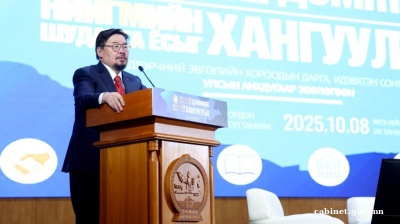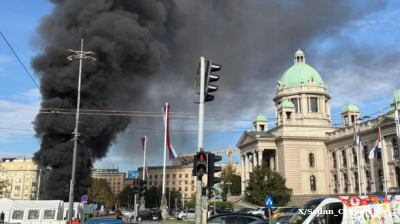Turkish President Recep Tayyip Erdogan said on July 5 that Turkish intelligence agents had abducted a Turkish-Kyrgyz educator Orhan Inandi, whom the Turkish government accuses of links to the Gulen movement, which it sees as a terrorist organisation responsible for orchestrating the failed coup attempt in 2016.
Inand’s disappearance from the Kyrgyz capital Bishkek a month ago led to protests both in Kyrgyzstan and abroad about the man’s safety. Inandi’s supporters suspected the involvement of Turkish agents.
The Turkish-born founder of the network of prestigious Gulen-backed Sapat schools has reportedly been held at a Turkish embassy in Bishkek, where he was allegedly forced to renounce his Kyrgyz citizenship.
The Alliance for Shared Values (ASV), which represents US-based Hizmet organisations, inspired by exiled Turkish preacher Fethullah Gulen, has compared Inandi’s situation in Bishkek to that of the late Jamal Khashoggi, murdered by Saudi agents in Saudi Arabia's Istanbul consulate in late 2018.
Human Rights Watch said it believed that Inandi was likely to be persecuted for his alleged ties to the movement connected with Gulen. Gulen has strenuously denied any involvement in the 2016 coup attempt. The human rights watchdog added that, if returned to Turkey, Inandi could be at risk of “mistreatment or torture”, along with arbitrary detention and an unfair trial.
Erdogan said after a cabinet meeting that Turkey’s MIT intelligence agency had captured Inandi and brought him back to his country of origin.
“As a result of genuine and patient work, MIT has brought a top Central Asian leader of FETO, Orhan Inandi, to our country to face justice,” Erdogan said, referring to the Gulen movement via the FETO acronym.
He noted that over 100 people with alleged connections to the Gulen movement have been abducted around the world and brought to Turkey.
National broadcaster TRT showed a photo of Inandi standing in handcuffed between two Turkish flags.
News

Mongolia’s PM to stay in power after court rules dismissal illegal
Observer says opponents of Zandanshatar Gombojav “rushed and sloppily handled motion” to dislodge him. Second attempt to vote him out not expected.
_1761147529.jpeg)
China accuses Washington of “bullying” over visa ban threats in Central America
China has sharply criticised the United States for its decision to impose visa restrictions on Central American officials and citizens accused of ties to the Chinese Communist Party, describing the move as evidence of American “arrogance and bias."

Serbian president calls fire, shooting outside parliament a terrorist attack
The attacker, a retired employee of the former State Security Service, opened fire on a tent settlement of pro-government supporters.

Bolivia's new leader must rebuild a shattered economy
Bolivia enters a new political and economic phase as centrist Rodrigo Paz prepares to take office on November 8, inheriting one of the country’s most acute crises since the hyperinflation of the 1980s.




